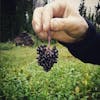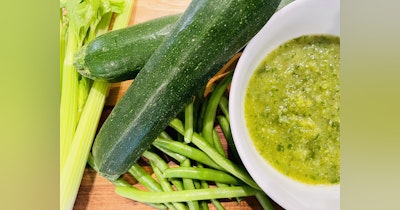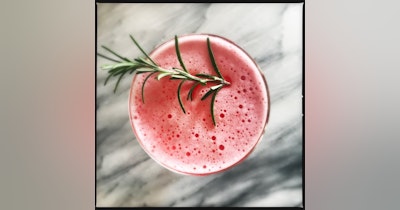Elderberries are native to North America (Sambucus canadensis) and Europe (Sambucus nigra). Traditionally, Sambucus spp. has been used as medicine as well as food and in winemaking. Elderberries are a deep purple in color and they are higher in vitamin C than many popular berries such as cranberries and blueberries. Packed with bioflavonoids, elderberries may offer health benefits such as protection from sun damage and reducing inflammation and oxidative stress. Anthocyanins are what give them their rich purple color and have antioxidant properties that contribute to their immune-stimulating benefits.
Some small studies have shown elderberries to be beneficial in reducing the severity of symptoms and duration of colds and flu. Because they have an effect on the immune system, they might not be for everybody, so check with your doctor before starting any new supplements.
Elderberry syrup is simple to make.
-
To a non-reactive pot add filtered water and dried elderberries.
-
Mix in your cinnamon and ginger root then bring to a boil.
-
Reduce heat and simmer for 30 minutes.
-
Remove from heat and allow the mixture to cool, but not quite to room temperature.
-
Strain the mixture into a heat-proof bowl using a strainer and unbleached cheesecloth or muslin. Don’t be like me and remember to wear gloves because the elderberries might stain your skin! Squeeze all of the liquid from the mixture, taking care not to burn yourself.
-
Add honey and stir until dissolved, then pour the mixture through a strainer into a sturdy sterilized jar. Make sure to add any undissolved honey that might remain in the bowl.
-
And there you go! Label the jar with the made-on date and store it in the refrigerator.
DOI: 10.1016/j.ctim.2018.12.004
DOI: 10.1016/j.aimed.2020.08.001
ELDERBERRY SYRUP
Do not start any new supplements, including elderberry syrup, without first consulting with your doctor.
Supplies
- Non-reactive pot (at least one quart)
- Cheesecloth
- Strainer or funnel
- Heat-safe bowl
- Sterilized jar with lid (mason jars work great!)
- Tape or label
Ingredients:
1 c dried elderberries- 2 c filtered water
- 1-2 tsp dried ginger root
- 1 cinnamon stick
- 1/2 c honey
Instructions:
- Add filtered water and dried elderberries to a non-reactive pot (glass, enamel, or ceramic).
- Stir in dried ginger root and cinnamon stick.
- Bring to a boil then reduce heat and simmer for 30 minutes.
- Remove from heat and allow mixture to steep for 1 hour.
- Carefully strain mixture into a heat-safe bowl through a funnel or strainer lined with cheesecloth. Carefully push the liquid through the cheesecloth using a spoon or, if the mixture is comfortable to handle, wrap the cheesecloth around the berries and squeeze. Wear gloves to prevent elderberries from staining hands.
- Allow syrup to cool until it is warm, then stir in honey to dissolve.
- Using a funnel, pour syrup into a sterilized jar with lid. Label the jar with the date the syrup was made.
- Store syrup in the refrigerator. If prepared and stored properly, the syrup can last for up to 3 months. The syrup can be poured into clean ice cube trays and frozen, then stored in a sealed container for up to six months.Makes approximately 16 oz syrup
Serving size: 1-2 tsp
Notes:
-
Omit dried ginger if you don’t like it, or add freshly grated ginger for extra zing! Adjust fresh ginger to taste.
-
Honey is not only for flavor, but it also acts as a preservative. Maple syrup or sugar can be substituted for honey.
-
Do not give elderberry syrup made with honey to children under one year old. Honey may contain bacteria that cause infant botulism, so it is best avoided in children under 12 months old.
Recipe adapted from Mountain Rose Herbs
-
DOI: 10.1016/j.ctim.2018.12.004
DOI: 10.1016/j.aimed.2020.08.001










